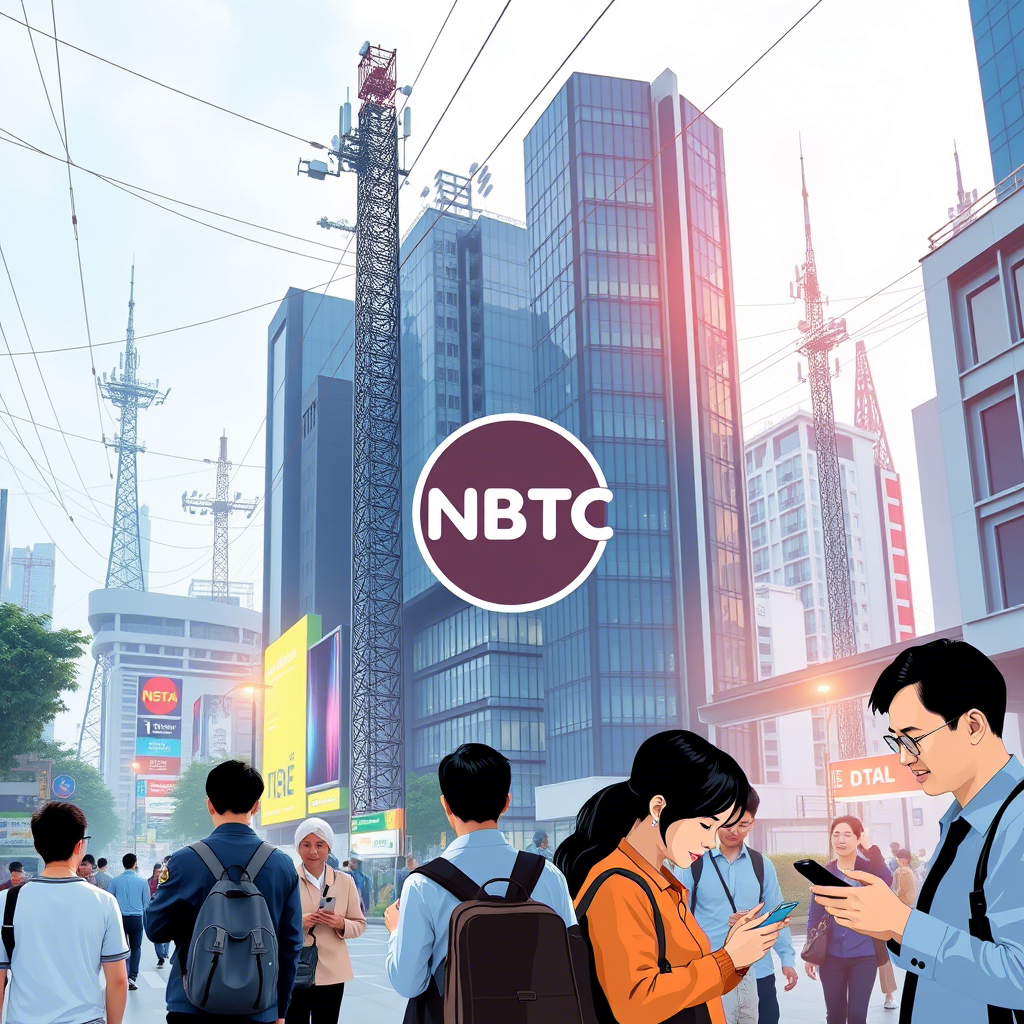Thailand’s technological landscape is evolving at a remarkable pace, reshaping industries, government operations, and everyday life. This blog will show you about the new digital technology in Thailand that is powering this transformation and positioning the country as an emerging digital hub in Southeast Asia. From ambitious government initiatives to innovative startups and widespread technology adoption, Thailand’s digital revolution offers insights into how developing economies can leverage technology for sustainable growth.
Thailand 4.0: The Foundation of Digital Transformation
The Vision Behind Thailand’s Digital Strategy
The Thai government launched the Thailand 4.0 economic model in 2016 as a visionary roadmap to transform the country into a high-income nation driven by innovation and technology. At its core, this initiative aims to shift Thailand’s economic focus from manufacturing to a value-based, digital economy.
“Thailand 4.0 represents a fundamental shift in our economic development paradigm,” explains Dr. Pichet Durongkaveroj, former Minister of Digital Economy and Society. “It’s about leveraging digital technologies to create innovative products and services across all sectors.”
The Digital Economy Promotion Agency (DEPA) reports that Thailand’s digital economy currently contributes approximately 20% to the country’s GDP, with projections to reach 30% by 2027. This growth is largely attributed to strategic investments in digital infrastructure and supportive regulatory frameworks.
Key Infrastructure Developments
This blog will show you about the new digital technology in Thailand that begins with its rapidly expanding digital infrastructure. The National Broadband Plan has significantly increased internet penetration rates, now reaching over 85% of the population according to the National Broadcasting and Telecommunications Commission (NBTC).
The rollout of 5G technology has been particularly impressive. Thailand became one of the first ASEAN countries to launch commercial 5G services in 2020. Major telecommunications providers like AIS, True, and DTAC have installed more than 30,000 5G base stations nationwide, covering major urban centers and industrial zones.
Emerging Technologies Transforming Thailand’s Landscape
Artificial Intelligence and Big Data
Artificial intelligence adoption in Thailand has accelerated dramatically in recent years. According to a 2023 survey by IDC Thailand, over 65% of large enterprises have implemented or are planning to implement AI solutions in their operations.
The government’s National AI Strategy (2022-2027) allocates approximately 28 billion baht ($800 million) to develop AI capabilities across healthcare, agriculture, tourism, and manufacturing sectors. The AI for Healthcare initiative has already deployed machine learning algorithms that analyze medical images at over 130 hospitals nationwide, significantly improving diagnostic accuracy.
Thai startups are also making significant contributions to the AI ecosystem:
- Aiyara, a Bangkok-based startup, has developed AI-powered agricultural drones that help farmers monitor crop health and optimize resource usage
- Amity’s conversational AI platform processes over 5 million customer service interactions monthly for major Thai corporations
- Jitta uses AI algorithms to analyze global stock markets, providing investment insights to over 200,000 users in Thailand
Fintech Revolution
This blog will show you about the new digital technology in Thailand’s financial sector, which has undergone a remarkable transformation. The Bank of Thailand reports that mobile banking transactions increased by 78% between 2020 and 2023, with over 80 million registered mobile banking accounts in a country of 70 million people.
PromptPay, Thailand’s national e-payment system, processes over 40 million transactions daily. This QR code-based payment system has dramatically reduced cash usage, particularly in urban areas where approximately 74% of retail transactions now occur digitally.
The regulatory sandbox established by the Bank of Thailand has fostered innovation while maintaining financial stability. Notable developments include:
- Blockchain-based digital ID verification systems that have reduced KYC processing times from days to minutes
- Peer-to-peer lending platforms that have expanded access to credit for over 2 million previously underbanked Thais
- Cross-border remittance solutions that have reduced transaction costs by up to 80% for migrant workers
E-Commerce and the Digital Marketplace
Thailand’s e-commerce market has experienced exponential growth, reaching approximately $33 billion in value in 2023 according to the Electronic Transactions Development Agency (ETDA). The COVID-19 pandemic accelerated this trend, with an estimated 12 million new online shoppers entering the digital marketplace between 2020 and 2022.
Local platforms like Shopee Thailand, Lazada Thailand, and JD Central dominate the market, but innovative specialized marketplaces are emerging:
- Freshket connects local farmers directly with urban restaurants, reducing food waste by 30% and increasing farmer income by up to 40%
- Pomelo has revolutionized fashion e-commerce with its “try-before-you-buy” model and AI-powered style recommendations
- GET, a super-app platform, integrates food delivery, ride-hailing, and financial services in a seamless digital experience
Smart Cities and Urban Innovation
Eastern Economic Corridor (EEC) Smart City Initiatives
The Eastern Economic Corridor (EEC) represents Thailand’s most ambitious smart city project, spanning three provinces east of Bangkok. This $45 billion development incorporates cutting-edge digital technologies to create sustainable urban environments:
- Intelligent transportation systems have reduced traffic congestion by 27% in pilot areas
- Smart grid implementations have improved energy efficiency by approximately 18%
- IoT-based environmental monitoring networks provide real-time air quality data to residents
Sriracha, one of the primary EEC development zones, has deployed over 10,000 connected sensors that monitor everything from waste management to public safety, generating an estimated 8 terabytes of urban data daily.
Phuket Smart City
Phuket’s transformation into a smart tourism destination demonstrates how digital technology can enhance both visitor experiences and sustainability. The island has implemented:
- A centralized data platform that integrates information from 118 government agencies and private businesses
- Smart transportation systems that have reduced average tourist commute times by 23%
- AI-powered safety systems that have contributed to a 35% reduction in marine accidents
- Digital tourism services that allow visitors to access cultural information and translation services via QR codes at over 300 historical sites
Challenges and Future Directions
Despite impressive progress, Thailand’s digital transformation faces several challenges:
Digital Divide and Inclusion
While urban areas enjoy excellent connectivity, approximately 15% of Thailand’s population still lacks reliable internet access, particularly in remote rural regions. The Digital Literacy Initiative aims to address this by providing basic digital skills training to over 3 million rural residents by 2026.
Cybersecurity Concerns
As digital adoption increases, so do cybersecurity threats. The Thailand Computer Emergency Response Team (ThaiCERT) reported a 47% increase in cybersecurity incidents between 2021 and 2023. In response, the government has established the National Cybersecurity Committee and allocated 5.6 billion baht ($160 million) to strengthen national cybersecurity infrastructure.
Regulatory Framework Evolution
Balancing innovation with consumer protection remains challenging. The Personal Data Protection Act (PDPA), which came into full effect in 2022, represents a significant step toward aligning Thailand’s data governance with global standards. However, implementing these regulations effectively across diverse sectors requires continued refinement.
Looking Ahead: Thailand’s Digital Future
This blog will show you about the new digital technology in Thailand that is expected to shape its future over the next decade. Several trends are likely to define this evolution:
Quantum Computing Investments
Thailand has begun investing in quantum computing research, with Chulalongkorn University establishing the Quantum Technology Foundation with an initial 320 million baht ($9 million) funding. These investments aim to develop quantum applications in cryptography, materials science, and financial modeling.
Green Technology Integration
Environmental sustainability is increasingly driving technological development. Examples include:
- Smart water management systems using AI and IoT sensors to reduce urban water waste by up to 30%
- Renewable energy microgrids powered by blockchain-based energy trading platforms
- Carbon footprint tracking applications that have been adopted by over 150 Thai corporations
Cross-Border Digital Collaboration
Thailand is actively fostering digital partnerships within ASEAN. The ASEAN Digital Integration Framework, co-developed with Singapore, aims to create a seamless digital marketplace of 650 million consumers across Southeast Asia. Thai companies are positioning themselves as regional digital service providers, leveraging the country’s strategic location and growing technological capabilities.
Conclusion
This blog will show you about the new digital technology in Thailand that is revolutionizing its economy and society. From government-led initiatives like Thailand 4.0 to grassroots innovation in AI, fintech, and smart cities, the country is embracing digital transformation at all levels. While challenges remain in bridging the digital divide and addressing cybersecurity concerns, Thailand’s commitment to technological advancement positions it as an emerging digital leader in Southeast Asia.
As the digital landscape continues to evolve, Thailand’s experience offers valuable insights for other developing economies seeking to harness technology for sustainable growth. The combination of strategic government planning, private sector innovation, and international collaboration creates a robust ecosystem for ongoing digital development.







